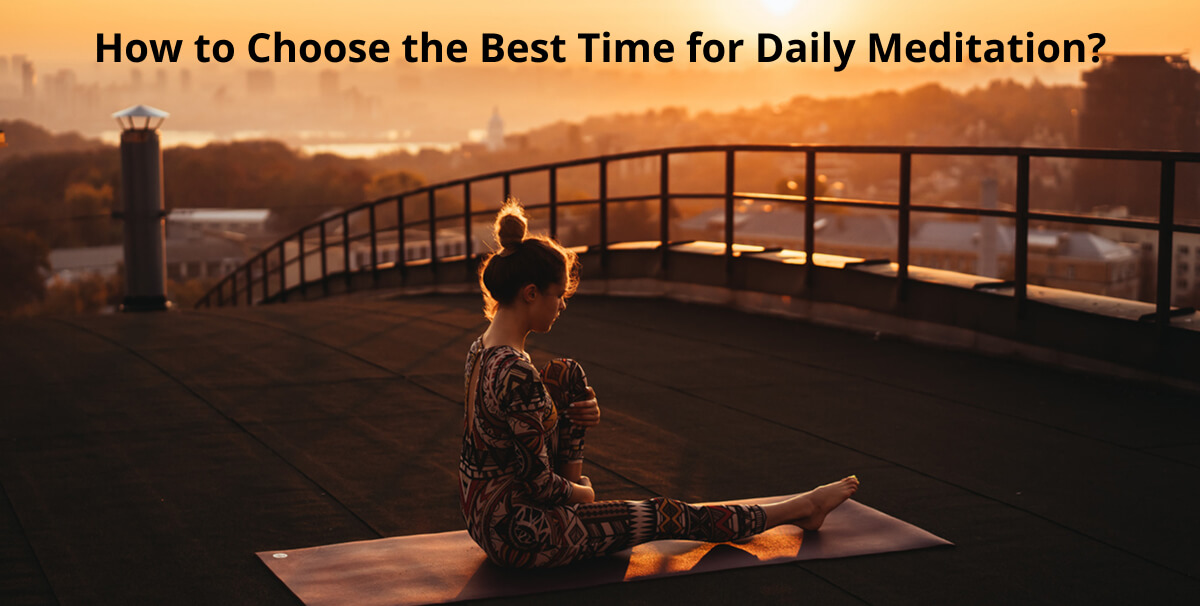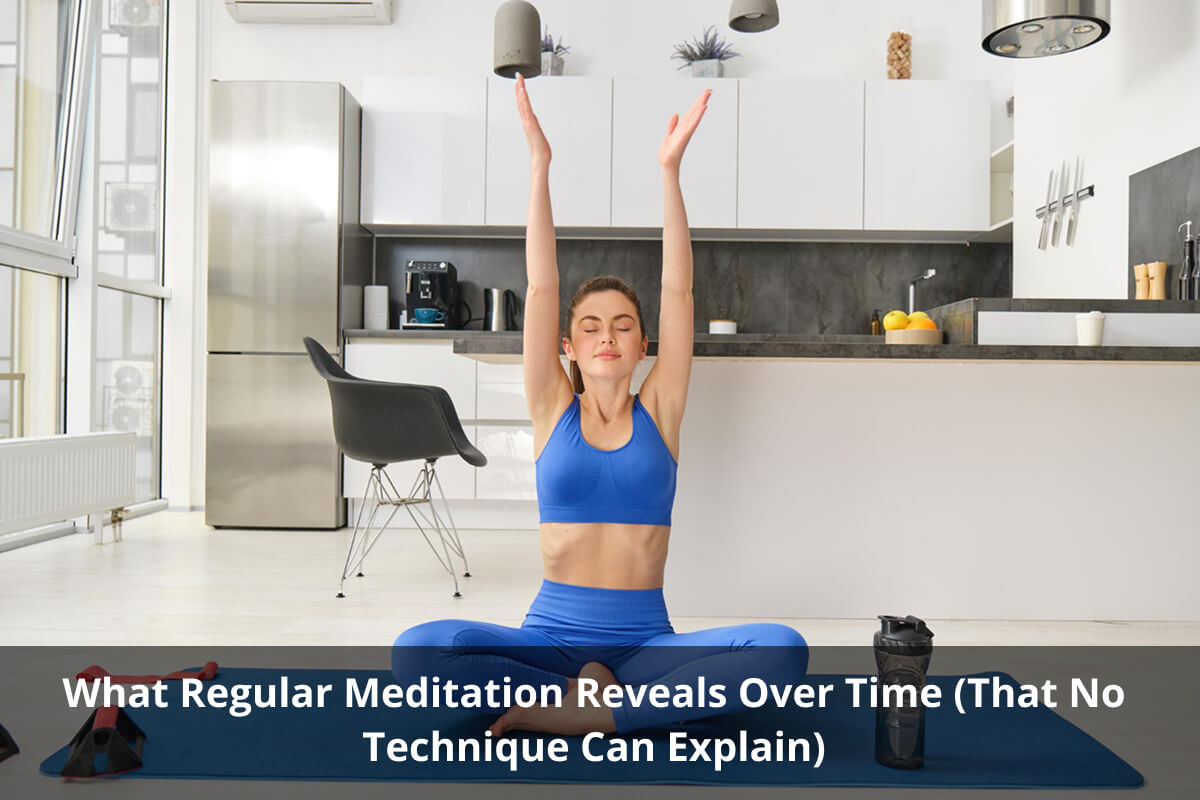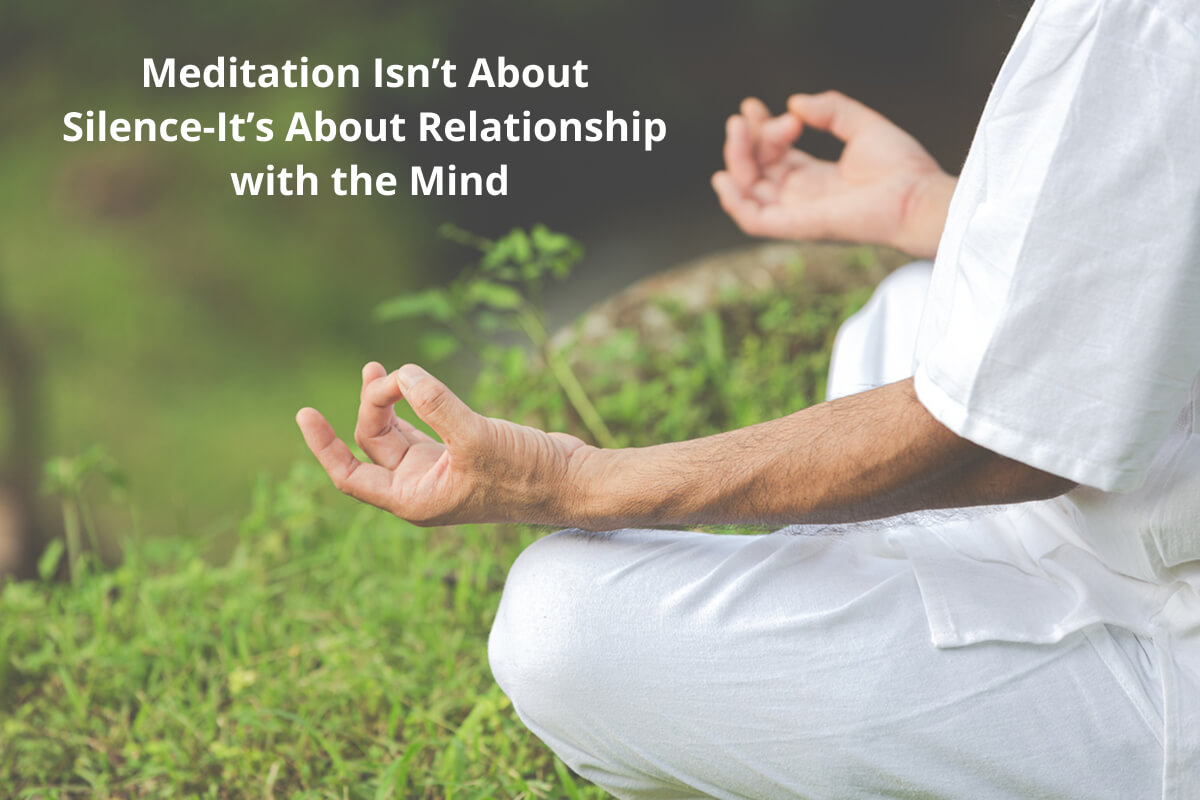
How to Choose the Best Time for Daily Meditation?
Table of Contents
Finding a regular opportunity to contemplate can be as important as the practice itself. While contemplation causes calm, clearness, and focus, these benefits frequently deepen when it enhances your day-to-day beat. Choosing the official time of a region helps you not only stay compatible but also harmonize your mind and physique to want the importance of silence.
The best period isn’t the same for everyone—it depends on your behavior, strength levels, and what you have in mind to avoid your practice. Whether you’re pursuing a serene start to the day, a middle of the day relocation, or a peaceful solution at dusk, your choice of organization can considerably influence the experience.
What Is Meditation?
In today’s fast-moving realm, many communities count on contemplation as a habit to slow down, clear the mind, and reopen accompanying themselves. Though frequently guided by silence and silence, contemplation is far more than just situated quietly—it is a practice that nurtures knowledge, balance, and closeness in common life.
From old ideas to up-to-date wellbeing practices, contemplation has existed embraced across civilizations for allure skill to nurture two together insane and tangible well-being. Whether trained for stress remedy, religious progress, or natural entertainment, it remains an eternal form for central renewal.
Related Blog: Types of Meditation: Which One Is Right for You?
Why Does Timing Matter in Meditation?
Meditation is most productive when it feels open and sustainable, that is the reason organizing plays specific a key act. While the practice itself produces calm and focus, the moment you pick to protest silence can shape by means of what intensely you buy and sell it.
Your body and mind return otherwise at fixed intervals of the era. Morning contemplation may set the attitude accompanying clearness and goal, while even contemplation can help release stress and promote quiet sleep. Choosing an occasion that joins your strength and behavior makes it smooth to stay agreeing—and thickness is what unlocks the deeper benefits of contemplation.
Popular Times of Day to Meditate
Finding the right time to meditate often depends on your personal rhythm and goals. Some people prefer to practice when their surroundings are quiet, while others fit it into their busiest hours for a mental reset. Over time, you may discover that certain times of day naturally feel more supportive for your practice.
Across traditions and modern routines, a few times of day have become especially popular for meditation. Each carries unique benefits, allowing you to choose based on your lifestyle and what you want to experience from the practice.
1. Early Morning
Many people choose to meditate at dawn or shortly after waking. At this time, the mind is fresh, the world is quiet, and distractions are fewer. Morning meditation can create a sense of clarity and intention that carries into the rest of the day.
Spiritually, early morning is often seen as a sacred time for stillness, aligning with natural cycles. Practicing at this hour can help anchor meditation as a daily habit since fewer responsibilities tend to compete for your attention.
2. Midday or Lunch Break
Meditating around midday is ideal for those who need a reset during work or school. Even a short session can ease mental fatigue, lower stress, and improve focus for the afternoon ahead.
This timing can be especially helpful for busy professionals, as it breaks the cycle of nonstop activity and provides a mindful pause. It doesn’t have to be long—even five to ten minutes of mindful breathing can recharge your energy.
3. Late Afternoon or Early Evening
As the day winds down, meditation in the late afternoon offers a way to release built-up tension. It creates a natural transition between work responsibilities and personal time, helping you enter the evening with more balance.
For those who struggle with carrying stress home, this time can act as a buffer. It allows you to let go of mental clutter before shifting into family, social, or personal activities.
4. Before Bedtime
Evening meditation is popular among those who use the practice to relax the body and mind before sleep. Gentle breathing, guided meditation, or body scans at night can quiet racing thoughts and prepare you for deeper rest.
This practice is less about energizing and more about unwinding. It’s especially beneficial for people who experience insomnia or stress-related sleep issues, as it signals the body to slow down and restore.
Related Blog: How to Do Meditation: A Step-by-Step Guide for Beginners
Factors to Consider When Choosing the Best Time
Finding the “best” time to meditate isn’t about following a universal rule—it’s about discovering what feels natural and sustainable for you. While early mornings or evenings are often recommended, your ideal meditation time depends on your personal lifestyle, energy patterns, and intentions for the practice.
Considering a few key factors can help you choose a time that supports both consistency and depth. Reflecting on these aspects will make your meditation feel less like an obligation and more like a grounding ritual you look forward to.
- Daily Schedule: Choose a time that fits seamlessly into your routine so it’s easier to stay consistent.
- Energy Levels: Notice when you feel most alert or most in need of calm, and use that as a guide.
- Goals of Meditation: Morning may support focus and productivity, while evenings may aid relaxation and sleep.
- Environment: Pick a time when your surroundings are likely to be quiet and free from distractions.
- Commitments & Responsibilities: Align your practice around family, work, or school obligations so it feels sustainable.
- Body’s Natural Rhythm: Pay attention to when your body feels most receptive—whether it’s energized at dawn or relaxed at night.
- Flexibility: Be open to adjusting the timing if your lifestyle changes or if you find another moment works better.
Tips for Building a Consistent Meditation Habit
Starting a meditation practice is often easier than keeping it going. The real benefits of meditation reveal themselves over time, through regular and steady practice. Consistency helps the mind adapt, making it easier to settle into stillness and experience the deeper effects of mindfulness.
The key is to approach meditation as a gentle routine rather than a strict obligation. With the right strategies, you can weave it into your daily life in a way that feels natural and sustainable.
- Start Small: Begin with just a few minutes a day and gradually extend the duration as it becomes comfortable.
- Pick a Regular Time: Link your practice to a daily routine, like after waking up or before bed, so it becomes automatic.
- Create a Dedicated Space: Set aside a quiet, inviting spot that signals your mind it’s time to meditate.
- Use Reminders: Set alarms, calendar alerts, or visual cues to help you stay on track.
- Stay Flexible: If you miss a session, don’t dwell—simply pick up again at the next opportunity.
- Explore Different Styles: Try breathing exercises, guided meditations, or mantra repetition to keep your practice engaging.
- Track Your Progress: Journaling or using meditation apps can help you notice improvements and stay motivated.
- Focus on How You Feel: Pay attention to the calm, clarity, or focus you gain—these benefits will encourage you to return.
FAQs About Choosing Best Time for Meditation
Everyone’s routine looks different, and it’s natural to have questions about when and how to fit meditation into daily life. Here are some of the most common questions people ask when choosing the best time to meditate.
Q1. Is it okay to meditate at different times each day?
Yes, it’s absolutely fine. While having a fixed schedule helps build habit, meditation is ultimately about presence. If your routine varies, practicing at different times is still beneficial. What matters most is consistency in showing up, even if the timing shifts.
Q2. How long should a beginner meditate daily?
Beginners can start with as little as 5–10 minutes a day. Short, regular sessions are often more effective than long, inconsistent ones. As you get more comfortable, you can gradually extend your practice to 15–20 minutes or more.
Q3. Can I meditate right after waking up?
Yes, meditating right after waking up is an excellent choice. Your mind is usually clearer in the morning, and practicing before the day’s distractions begin can set a calm, intentional tone for the hours ahead.
Q4. Is night meditation effective for stress relief?
Absolutely. Evening or bedtime meditation helps release tension from the day and prepares your body for rest. Gentle practices like body scans, breathing exercises, or guided relaxations are especially effective at reducing stress before sleep.
Q5. Does meditation work better on an empty stomach?
Meditating on an empty or light stomach often feels more comfortable, as a heavy meal can make you drowsy or distracted. However, it’s not a strict rule—if you’re hungry to the point of distraction, a light snack before meditating may be more helpful.
Conclusion
Choosing the best time for meditation is a personal journey. There’s no single “perfect” moment that fits everyone—what matters most is finding a rhythm that feels natural, sustainable, and supportive of your lifestyle.
By experimenting with different times and observing how your body and mind respond, you’ll discover when meditation feels most rewarding. The key is consistency: no matter when you practice, showing up regularly is what allows the benefits to truly unfold.
Discover the Perfect Meditation Routine with Mrunal Pawar
Creating a meditation practice is easier when you have the right guidance. With personalized support, you can learn how to choose the best time, develop a routine that fits your lifestyle, and explore techniques that keep you motivated.That’s where Mrunal Pawar can help—offering practical insights, step-by-step guidance, and encouragement to help you build a meditation habit that truly lasts.





